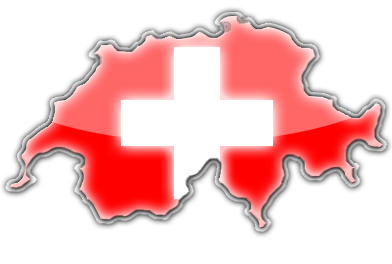Vladimir Putin will once again be Russia’s leader after winning a majority of votes in the presidential election. Swiss media believe the result is not good news.
Putin will be returning to head the state for what could be another 12 years, after a first stint between 2000 and 2008, and editorialists believe his leadership style will be a recipe for economic failure.
Two exit polls on Sunday showed Putin with 58-59 per cent of the vote, and incomplete results showed him winning more than 64 per cent. Full results are expected later on Monday.
His nearest rival, Communist Party leader Gennady Zyuganov, had about 17 per cent of votes, and nationalist Vladimir Zhirinovskiy, former parliamentary speaker Sergei Mironov and billionaire Mikhail Prokhorov were all below ten per cent.
But vote monitors from the opposition and bloggers posted allegations of election rigging across the country of 143 million. Golos, an independent monitoring group, said it had registered at least 3,500 reports of violations nationwide.
No surprise
For the Swiss media, the result was never in doubt, and the first-round victory was anything but a surprise.
"Putin’s return to the presidency is a non-event,” said the editorialist in Fribourg’s La Liberté, a sentiment echoed by most of his colleagues.
However, the fact that Putin did not romp home by a huge margin is an indication that change is underway in Russia, according to the Basler Zeitung.
"It is possible that he [Putin] is convinced that he has won the battle for Russia’s soul and will legitimately rule the country for the next six years,” it wrote. "But that doesn’t change the fact that Putin has lost half of Russia. It might only be a small half, but it is growing… and it is the more active half. Russia has begun to move, without Putin.”
That change has been partially brought about by a lack of economic success under Putin’s stewardship as president and prime minister.
For Zurich’s Tages-Anzeiger, "the authoritarian state has not brought about the economic success that was supposed to legitimise its existence. During the global financial crisis, Putin’s system has proven itself to be ramshackle… with the country’s gross domestic product falling nine per cent in 2009 alone.”
Instability
For the paper’s editorialist, it is this fatal mixture of loss of democracy and a failing economy that has led to unrest among Russia’s growing middle class, with any trust in Putin vanishing.
"In any other democratic state, a government with such catastrophic economic results would have been voted out of office,” it added. "Putin is back though with his old recipes. Protests will only increase and the stability Putin hoped for will stay out of reach.”
For the Neue Zürcher Zeitung, the new Russian president’s ambition is to make Russia a superpower once again, but paradoxically, he is one of the biggest obstacles to its success, meaning the West has little to fear from Russia.
"Effective foreign and military policies rely today on a strong economy,” it pointed out. "Putin stalled reforms, preferring to maintain control through his minions. The economy did grow, but without the shackles imposed by Putin, it would have done better.”
"His candidacy split the land, but it also hinders the economy. Because of this, Russia will remain a difficult partner on the international scene, but it will not have the weight it needs to make its presence felt for years.”
However La Liberté warned the rest of the world should pay more attention.
"If Putin can remodel the Russian state any way he wants, it’s also because of the West’s lack of interest,” it warned.
"And even if he is a difficult customer, Putin cannot be ignored on vital questions such as Europe’s energy supply, the Syrian crisis or curtailing Iran’s nuclear ambitions. Keeping him happy is a requirement in the international arena.”
Vladimir Putin meets with ILO General Director Juan Somavia in SwitzerlandTranscript of the beginning of meeting:
Juan Somavia (via interpreter): Mr Putin, first of all, I would like to welcome you here.
As we all know, Russia plays an important role in the modern world, especially considering the global balance that changes daily. Your leadership is a fundamental issue and your visit is an honour for the ILO (International Labour Organisation). We are also glad to receive other members of the Russian delegation as well.
Vladimir Putin: Mr Director -General, thank you very much for your invitation. The ILO is one of the most important institutions that are part of the UN family. You have just mentioned the importance of maintaining a balance. Well, I believe the ILO is in fact performing this essential function – of maintaining a balance between the workforce, businesses and state authorities.
...Transcript of the beginning of meeting:
Juan Somavia (via interpreter): Mr Putin, first of all, I would like to welcome you here.
As we all know, Russia plays an important role in the modern world, especially considering the global balance that changes daily. Your leadership is a fundamental issue and your visit is an honour for the ILO (International Labour Organisation). We are also glad to receive other members of the Russian delegation as well.
Vladimir Putin: Mr Director -General, thank you very much for your invitation. The ILO is one of the most important institutions that are part of the UN family. You have just mentioned the importance of maintaining a balance. Well, I believe the ILO is in fact performing this essential function – of maintaining a balance between the workforce, businesses and state authorities.
Russia is determined to make an adequate contribution to this balance -- and also by cooperating with the International Labour Organisation. We are cooperating in accordance with our agreements for 2010-2012. I am glad to have this opportunity to discuss our future cooperation with you today. We cannot imagine our work without the ILO’s efforts to resolve social problems to protect workers’ interests.


